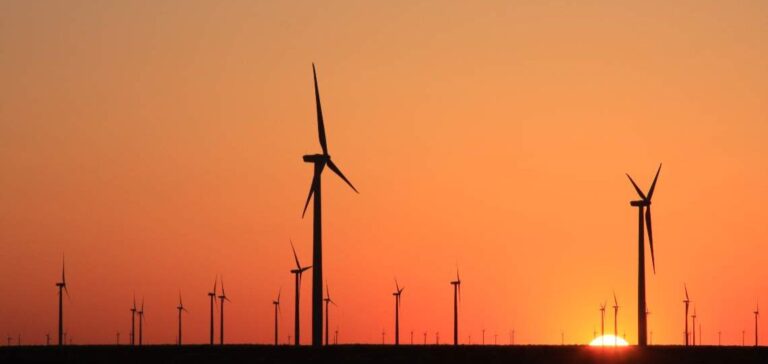The growing share of wind and solar power in Brazil ‘s electricity production has helped reduce CO2 emissions by gradually replacing fossil fuels, according to a study released Thursday.
In February, only 4.9% of Brazil’s grid electricity was generated by fossil fuels, falling below 5% for the first time since July 2012, assures the London-based research center Ember, which specializes in renewable energy. If we take into account the entire first quarter, the share of fossil fuels is 5.4%, compared to 10% in the first three months of 2022.
As a result, CO2 emissions from the electricity sector fell by 29% over the same period, despite an increase in energy production. This is due in particular to wind farms and solar panels, which account for 12% and 3% of Brazil’s electricity generation capacity respectively. In this country of continental dimensions and numerous rivers, hydroelectric power plants remain the “backbone” of the energy production system, generating 63% of the electricity, explains the study’s author, Matt Ewen. But the yield of the dams has fallen sharply in recent years, while demand continues to rise.
In 2021, they will be operating at 38% of their maximum capacity, compared to 59% in 2011. In contrast, average annual wind power generation has increased by 36% since 2011, and 26% for solar. These two energy sources combined to meet 73% of the excess demand this year. The development of solar and wind power “will be crucial if Brazil wants to stop using fossil fuels in the future,” says Ewen. “Their share needs to increase further to meet the country’s demand,” he insists.
Brazil, which will chair the G20 in 2024, has the highest share of renewable energy in this group of the world’s top 20 economies, producing 89% of the country’s electricity in 2022. The remaining 11% is derived from fossil fuels, including natural gas.
Left-wing President Luiz Inacio Lula da Silva, who took office in January, has promised to invest in renewable energy and put Brazil back at the center of the fight against climate change. During the term of his far-right predecessor Jair Bolsonaro (2019-2022), the international community had strongly criticized the Brazilian government’s policies in the face of increasing deforestation and fires in the Amazon.





















